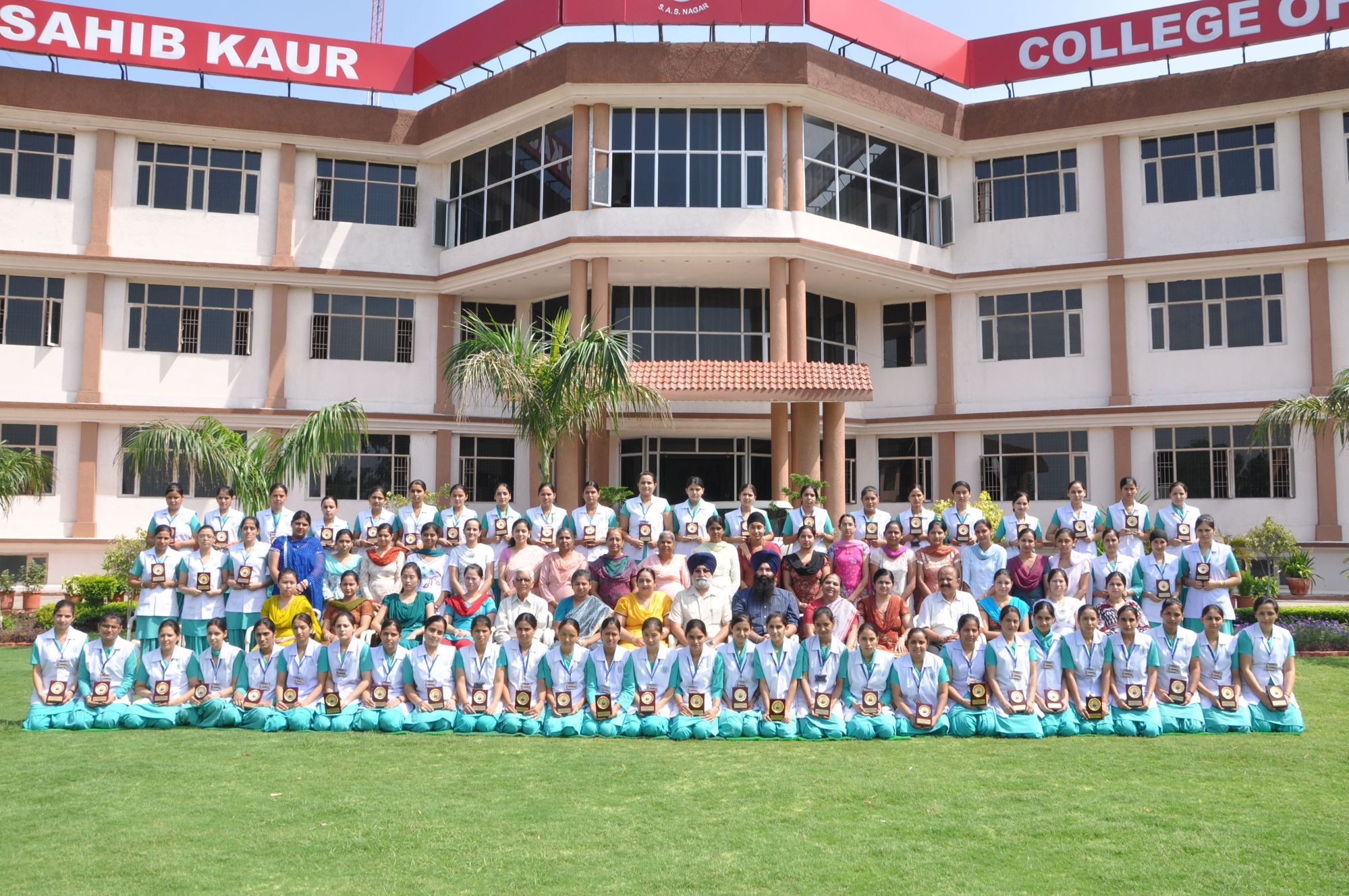With the growing demand for healthcare professionals, nursing has emerged as one of the most sought-after career paths. Government colleges, known for their affordability and quality education, offer BSc Nursing programs at a fraction of the cost compared to private institutions. This guide will walk you through everything you need to know about BSc nursing fees in government colleges, including factors influencing costs, financial aid options, and more. Whether you're a student planning your academic journey or a parent exploring opportunities for your child, this article will provide clarity and actionable insights. Pursuing a BSc in Nursing from a government college not only equips you with the skills needed to excel in the healthcare sector but also ensures you receive a degree at a reasonable cost. Government institutions are often subsidized by the state, which significantly reduces tuition fees. However, fees can vary based on location, facilities, and additional charges. Understanding these nuances is crucial to making an informed decision. By the end of this article, you'll have a comprehensive understanding of the financial aspects of BSc nursing programs in government colleges and how they can fit into your budget. In addition to tuition fees, other expenses such as hostel charges, books, uniforms, and clinical training fees may apply. While government colleges are more affordable, it's essential to account for these additional costs to avoid surprises. This article will also cover scholarships and financial aid options available to students, ensuring that financial constraints don’t stand in the way of your dreams. Let’s dive deeper into the topic and explore the various aspects of BSc nursing fees in government colleges.
Table of Contents
- What Are the Average BSc Nursing Fees in Government Colleges?
- What Factors Influence BSc Nursing Fees in Government Colleges?
- Are There Scholarships for BSc Nursing Students in Government Colleges?
- How to Choose the Right Government College for BSc Nursing?
- What Are the Additional Costs Beyond BSc Nursing Fees?
- Why Are Government Colleges Preferred for BSc Nursing Programs?
- Is the BSc Nursing Program Worth the Investment?
- Frequently Asked Questions About BSc Nursing Fees in Government Colleges
What Are the Average BSc Nursing Fees in Government Colleges?
The cost of pursuing a BSc in Nursing in government colleges varies significantly depending on the state, the institution's reputation, and the facilities provided. On average, the tuition fees for a BSc Nursing program in a government college range between INR 10,000 to INR 50,000 per year. This is a stark contrast to private institutions, where fees can soar up to INR 1,00,000 or more annually. Government colleges are subsidized by the state, making them an affordable option for students from diverse financial backgrounds.
For instance, in states like Kerala and Tamil Nadu, the fees are on the lower end of the spectrum, often starting at INR 10,000 per year. On the other hand, states like Maharashtra and Delhi may have slightly higher fees due to better infrastructure and facilities. However, even in these states, the fees remain significantly lower than private colleges. It's important to note that these figures are approximate and can vary based on additional charges such as hostel fees, examination fees, and clinical training expenses.
Read also:What Is Sabrina Carpenters Original Hair Color Discover The Secrets Behind Her Iconic Look
Students should also consider the cost of books, uniforms, and other miscellaneous expenses when budgeting for their BSc Nursing program. While government colleges are known for their affordability, these additional costs can add up. To get an accurate estimate, it's advisable to visit the official website of the college or contact their admissions office directly. Understanding the fee structure will help you plan your finances better and ensure a smooth academic journey.
State-Wise Variation in BSc Nursing Fees
The fees for BSc Nursing programs in government colleges differ from state to state. Here’s a breakdown of how fees vary across different regions:
- Kerala: Known for its affordable education system, Kerala offers BSc Nursing programs at approximately INR 10,000 per year.
- Tamil Nadu: Similar to Kerala, Tamil Nadu's government colleges charge around INR 15,000 annually.
- Maharashtra: Fees in Maharashtra range between INR 20,000 to INR 40,000 per year, depending on the institution.
- Delhi: Being the capital city, Delhi's government colleges charge slightly higher fees, averaging around INR 30,000 to INR 50,000 annually.
This variation is primarily due to differences in state subsidies and the quality of facilities provided by the colleges.
What Factors Influence BSc Nursing Fees in Government Colleges?
Several factors contribute to the variation in BSc nursing fees in government colleges. One of the most significant factors is state subsidies. Government colleges receive financial support from the state government, which helps reduce tuition fees. However, the extent of this subsidy varies from state to state, leading to differences in fee structures. For example, states with higher education budgets may offer more substantial subsidies, resulting in lower fees for students.
Another factor is the infrastructure and facilities provided by the college. Institutions with modern laboratories, well-equipped libraries, and advanced clinical training centers may charge slightly higher fees to cover maintenance and operational costs. Additionally, colleges located in metropolitan cities tend to have higher fees due to the increased cost of living and operational expenses in urban areas. These factors are essential to consider when evaluating the overall cost of pursuing a BSc in Nursing.
Furthermore, the reputation and ranking of the college can also influence fees. Prestigious government colleges with a strong track record of producing skilled nursing professionals may charge higher fees compared to lesser-known institutions. However, even in such cases, the fees remain significantly lower than private colleges. Understanding these factors will help you make an informed decision when selecting a college for your BSc Nursing program.
Read also:Exploring 1blasters New Domain 2024 Your Ultimate Guide To Download And Beyond
Are There Scholarships for BSc Nursing Students in Government Colleges?
Yes, there are numerous scholarships and financial aid options available for students pursuing BSc Nursing in government colleges. These scholarships aim to support students from economically disadvantaged backgrounds and ensure that financial constraints don’t hinder their education. Many state governments offer merit-based and need-based scholarships specifically for nursing students. For example, the National Scholarship Portal provides a centralized platform for students to apply for various scholarships offered by the central and state governments.
In addition to government scholarships, several private organizations and NGOs also offer financial assistance to nursing students. These scholarships are often based on academic performance, extracurricular achievements, or community service. Some colleges even have their own scholarship programs to support meritorious students. To avail of these scholarships, students need to meet specific eligibility criteria and submit the required documents, such as income certificates and academic transcripts.
It’s important for students to research and apply for scholarships well in advance to ensure they meet the deadlines. Many scholarships have limited seats, and early applications increase the chances of securing financial aid. By taking advantage of these opportunities, students can significantly reduce the financial burden of pursuing a BSc in Nursing and focus on their studies without worrying about fees.
How to Apply for Scholarships?
Applying for scholarships can seem daunting, but following a structured approach can simplify the process:
- Research Available Scholarships: Start by identifying scholarships offered by the government, private organizations, and your college.
- Check Eligibility Criteria: Ensure you meet the requirements, such as income limits, academic performance, or community involvement.
- Gather Required Documents: Collect documents like income certificates, mark sheets, and identification proofs.
- Submit Applications on Time: Adhere to application deadlines and submit all required documents accurately.
How to Choose the Right Government College for BSc Nursing?
Selecting the right government college for your BSc Nursing program is a critical decision that can shape your career. With numerous options available, it’s essential to consider several factors to make an informed choice. One of the first things to evaluate is the college’s accreditation and recognition. Ensure that the institution is approved by the Indian Nursing Council (INC) and affiliated with a reputable university. This guarantees that the program meets the necessary standards and that your degree will be recognized by employers.
Another crucial factor is the quality of faculty and teaching methods. Look for colleges with experienced faculty members who have practical experience in the nursing field. Additionally, check if the college offers hands-on training through clinical rotations and internships. Practical exposure is vital for developing the skills needed to excel in nursing. Visiting the campus, attending open houses, or speaking with current students can provide valuable insights into the teaching quality and campus environment.
Location and infrastructure are also important considerations. Choose a college that is conveniently located and offers modern facilities such as well-equipped labs, libraries, and hostels. A conducive learning environment can significantly enhance your educational experience. Finally, consider the overall cost, including tuition fees, hostel charges, and other expenses, to ensure the college fits within your budget. By carefully evaluating these factors, you can select a government college that aligns with your academic and career goals.
What Are the Additional Costs Beyond BSc Nursing Fees?
While BSc nursing fees in government colleges are relatively affordable, students must also account for additional costs to avoid financial surprises. One of the most significant expenses is hostel fees, especially for students relocating from other cities or states. Hostel charges can range from INR 20,000 to INR 50,000 annually, depending on the facilities provided. Some colleges offer subsidized hostel accommodation, while others may have higher fees for premium amenities.
Another expense to consider is the cost of books, uniforms, and medical equipment. Nursing students often need to purchase textbooks, lab coats, stethoscopes, and other essential tools. These costs can add up to INR 10,000 to INR 20,000 annually. Additionally, clinical training fees may apply, as students are required to complete internships in hospitals. These fees cover the cost of supervision, materials, and other resources used during training.
Students should also budget for examination fees, transportation costs, and miscellaneous expenses such as internet charges and extracurricular activities. While these costs may seem minor individually, they can collectively impact your overall budget. To manage these expenses effectively, it’s advisable to create a detailed financial plan before enrolling in a BSc Nursing program. By accounting for all potential costs, you can ensure a smooth and stress-free academic journey.
Tips to Manage Additional Costs
Managing additional costs can be challenging, but with proper planning, you can minimize financial strain:
- Create a Budget: List all potential expenses and allocate funds accordingly.
- Buy Second-Hand Books: Save money by purchasing used textbooks or borrowing from seniors.
- Apply for Scholarships: Seek financial aid to cover additional expenses like hostel fees and clinical training costs.
- Use Public Transport: Opt for affordable transportation options to reduce commuting expenses.
Why Are Government Colleges Preferred for BSc Nursing Programs?
Government colleges are the preferred choice for many students pursuing a BSc in Nursing due to their affordability, quality education, and strong placement opportunities. One of the primary reasons is the significantly lower tuition fees compared to private institutions. This makes government colleges accessible to students from diverse financial backgrounds, ensuring that education is not limited to those who can afford high fees. Additionally, government colleges often receive state subsidies, which further reduce the financial burden on students.
Another advantage


